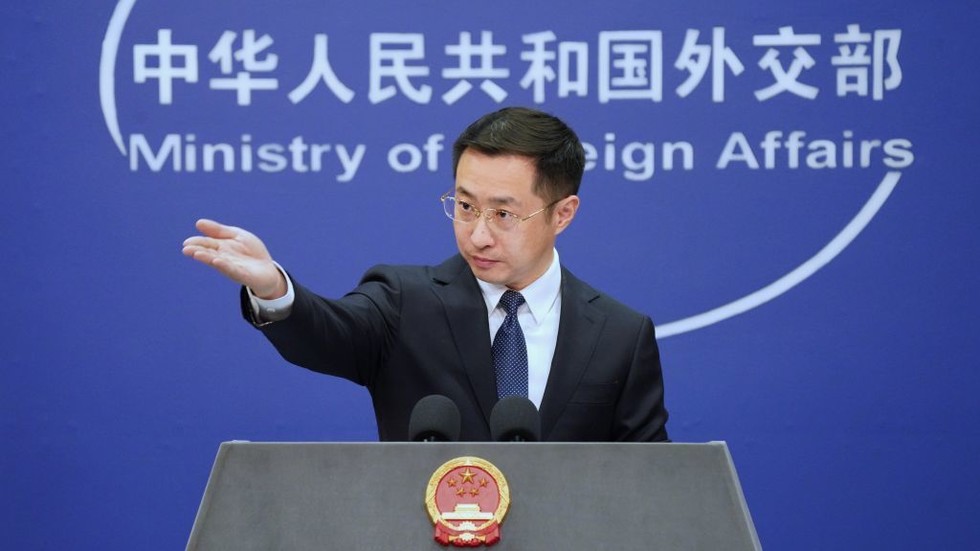In response to Washington’s recent announcement regarding the operationalization of its new satellite jammers, Beijing’s Foreign Ministry has issued a firm warning urging the United States to halt the militarization of space, emphasizing the need for global security. The ministry’s spokesman, Lin Jian, articulated China’s stance at a press conference, stating that the nation advocates for the peaceful use of outer space and vehemently opposes any arms race or weaponization of this domain. He criticized the U.S. for expanding its military capabilities in space and urged it to act responsibly, contribute to the maintenance of peace, and refrain from making unfounded remarks that could escalate tensions. The concerns stem from the perceived threats posed by U.S. ground-based jammers to Chinese satellites, leading to heightened sensitivities regarding space security.
Lin Jian’s remarks reflect China’s broader strategy of positioning itself as a proponent of peace in space, asserting that it does not seek to engage in a competitive space race or pursue superiority over other nations. In contrast, he claimed that the U.S. is actively defining space as a battlefield and fostering an arms race through the development of military alliances focused on space. This narrative underscores a growing divide between China and the U.S. in terms of their respective space policies and military ambitions, with both nations accusing each other of fostering an environment of hostility and militarization in outer space.
The U.S. plans to deploy the initial five of a projected 32 satellite jammers, designated as the Counter Communications System, which is expected to become operational between January and March 2025, albeit behind schedule. These systems are primarily designed to disable the communication capabilities of Chinese and Russian satellites in the event of conflict. This technological move highlights the increasing recognition by the Pentagon of the strategic importance of space warfare capabilities as well as the perceived threats posed by China’s and Russia’s growing satellite networks. The U.S. military has expressed concerns regarding Beijing’s development of anti-satellite weapons, framing it as a significant element of China’s evolving military strategy.
Conversely, the Chinese government strongly refutes allegations of its own militarization and accumulation of anti-satellite technology, arguing instead that the U.S. is the primary source of threats to space security. Beijing accuses Washington of pursuing aggressive military policies and seeking to dominate space through various tactical deployments. This dynamic creates an environment of mistrust and mutual suspicion, exacerbating the challenges related to global security in space. The assertion by Chinese officials that the U.S. is fostering an arms race serves to highlight the contrasting narratives emerging from both nations regarding their intentions and actions in outer space.
Additionally, escalating tensions regarding space capabilities extend to Russia, which has faced similar accusations from the U.S. regarding the development of anti-satellite systems, allegedly with potential nuclear capabilities. Moscow has consistently rebutted these claims as mere fabrications aimed at diverting attention from the military undertakings being carried out by the U.S. in space. This interplay of accusations creates a complex geopolitical landscape where the actions taken by one nation are perceived as direct provocations by another, fueling a cyclical pattern of military posturing and rhetoric.
In summary, the discourse surrounding the militarization of space has become increasingly contentious between the U.S. and China, with both nations expressing deep concerns over each other’s military capabilities and intentions. As the U.S. prepares to deploy satellite jammers, China emphasizes its commitment to peace in space while accusing the U.S. of escalating tensions through military development. This situation reflects an urgent need for dialogue and cooperation to establish norms and frameworks that can prevent an arms race in outer space, as the ongoing challenges highlight the critical importance of diplomacy in addressing the complexities of international security in the modern era.

